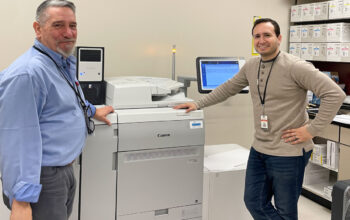Skye Curren, Editor-in-Chief
@esccourant
For as long as there have been tests, there has been cheating. Some students have always had wandering eyes on tests, or found it was easier to copy some else’s ideas on a paper rather than come up with their own, and teachers have always known to separate desks and check suspicious essays.
But recently, there has been a cultural shift in cheating, and it has become even easier to cheat with new technology and online tests. There has been a pressure to get into elite colleges and universities, evident in the recent college admissions scandal where parents would pay thousands of dollars to get their children into a good school. The faculty’s recent approval of an honor code prompted a Courant inquiry into cheating at NCHS, and found that while students reported less cheating than the national average, there is still a cheating problem here.
One one of the best-known surveys of academic integrity nationwide, Rutgers University researcher Donald McCabe found that 95% of 24,000 students at 70 schools admitted to cheating on a test, plagiarizing, or copying homework. At NCHS, 65.7% of 172 respondents to a Courant survey on academic integrity said that they had cheated in high school.
Homework
64% of students ranked copying homework as ‘most understandable’ on a scale from ‘least acceptable’ to ‘most understandable.’ Additionally, 54.7% of students admitted to copying homework, and 54.1% to sending/receiving answers to homework.
One student, a junior, who has never cheated on large assignments, said some cheating on homework is justified. “If my teachers assigned me busy work for homework, and I have two tests the next day, I’m going to get the answers from someone,” they said. “If the work won’t benefit my academics, why should I do it?”
Test and Quizzes
Another common form of cheating at the high school is cheating on tests or quizzes. 19.8% of students admitted to using a cheat sheet on a quiz/test, 21.5% to putting answers into a calculator before a test/quiz, and 50.6% admitted to telling a friend the answers of a quiz/test. Additionally, while 73.8% of students agreed that having answers for a quiz or test was unacceptable, 51% said that telling a peer what was on a test/quiz was understandable.
One important facet of cheating is cheating on online tests. One junior, who was caught cheating in a humanities class, said that while they might have been the one to get caught, most cheaters aren’t caught. “I just did what a lot of kids do on online tests, I looked up the question on google to try and find the best answer to try and get the best grade,” they said. “The silly part was I knew the answer but I wanted the best answer that I knew was right, not my answer.”
“It was just my luck that I got caught rather than all the kids who were doing the exact same thing in my class,” they said. “The truth is that in my experience most kids in high school cheat rather than those who don’t.”
A junior student agrees, saying that in their experience, the answers are just a click away. “We had open-ended questions on our computers, so it was really easy just to look up the textbook or the answers,” they said. They also said that, while we might not think of calculators as a computer, typing in answers or formulas can be necessary to get the grade you want.
“I think there’s really high expectations to do super well and to know everything that was covered, and sometimes you just don’t understand a concept,” they said. “Teachers don’t really get that there are some things you’re just never going to understand. Say it’s a math formula, and you keep going in for help, and you still don’t understand it? Sometimes you need to cheat to do well on the test.”
Another junior confirms that cheating often happens on online tests. “My teacher has online tests, and people just have the powerpoint up while they’re taking the test,” they said.
They also brought up another common theme: the online test bank. These are used in a lot of humanities and science classes, in particular to help students prepare for AP exams, but the answers can often be found online and memorized in preparation for the test. “In an AP class I’m taking, our teacher uses a test bank which is online. Several students informed him that students are cheating because they have found the test bank,” the same junior said. “But then he just resorted back to the test bank questions.”
Another senior student agreed with them about the breadth of the answer key problem, and said that, in their opinion, the cheating problem is worse in advanced classes. “I found out that for seven different classes in the last four years, there were large portion of students who were searching for, sometimes paying for, online test banks or answer keys,” they said.
Plagiarism
Generally, most acknowledge that plagiarism is the worst form of cheating, with 84.1% of students rating plagiarism as least acceptable. One student, who says they normally can empathize with cheating students, reported an incident of plagiarism to their teacher. “To me, plagiarism is far worse than other forms of cheating because you are claiming not just the answers of other people, but other people’s original ideas as your own,” they said. “Never in my life have I been in a position where I’ve felt that that is remotely necessary or justified.”
English teacher Matthew Quinn thinks that the problem of plagiarism runs deeper than just just stealing ideas, though. “The biggest problem with plagiarism is that it fosters intellectual cowardice,” he said. “There’s a difference between a kid who doesn’t want to do the work, and a kid who’s afraid to be wrong. The kid who’s afraid to be wrong who goes to the internet or copies an assignment is never willing to take the risk to be wrong, and they don’t understand that the growth comes from taking the risk. When will they ever be able to stand by an idea and say, ‘I’m confident in this,’ without someone else telling them that it’s good?”
Mr. Quinn also said that he has had students plagiarize in his class before. “When you’re a teacher, you’re going to have it happen,” he said. “My reaction, from an academic standpoint, is to give them a zero on the assignment. If it’s a major assignment, I’ll send an email home. I also consult with the kids- make sure they understand why it’s plagiarism- and have them do a reflection.”
Why do students cheat?
There’s often an idea that people cheat because of laziness. And while this might be true for some people, 51.7% of people surveyed said that it was because they didn’t have time or were focusing on another subject, whereas only 18% said it was because of laziness.
One junior thinks that teachers need to be more understanding of this. “When people cheat, it’s not just because they’re not willing to do the work,” they said. “If you’ve already done everything you can, or if you approach the teacher and they still haven’t been helpful, I think it’s more understandable to cheat.”
Another junior said that he thinks the school culture is a major reason why students cheat. “I think students decide to cheat because, at the end of the day, school is a pretty competitive environment,” they said. “I personally believe that school is becoming less and less about learning and more about memorization and tossing away knowledge the second the test is done.”
For this reason, they think that there needs to be a cultural shift before the problem can properly be addressed. “I think to solve the problem of cheating, you have to fix the bigger problems in American education, which almost incentivizes cheating as the benefits often heavily outweigh the drawbacks and risks if you get away with it,” they said.
A senior student agreed with them that, often, the benefits of cheating can outway the risks. “If one student cheats and goes unpunished, other students who are competing for high grades are disadvantaged if they do not join,” they said. “After all, colleges see your grades but not your morals.”



